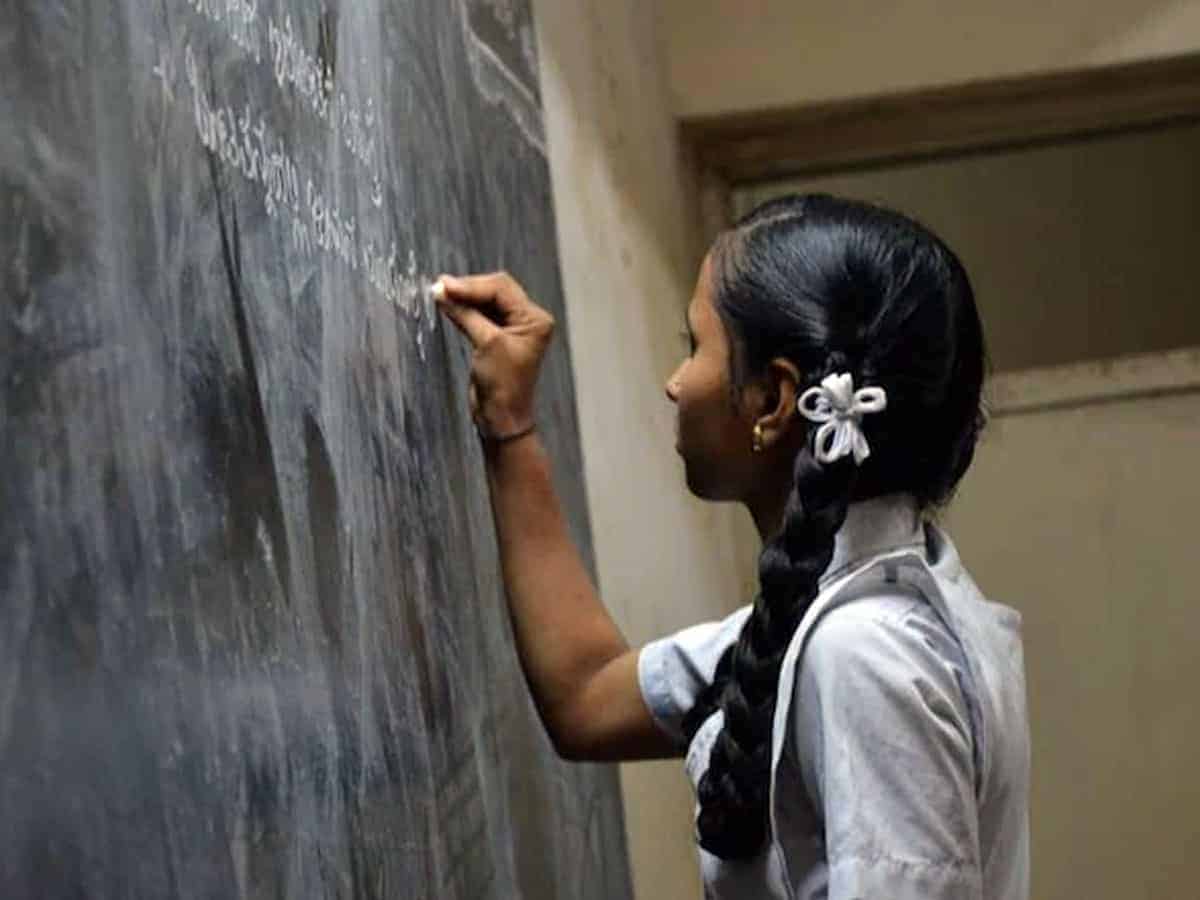
Lucknow: In Uttar Pradesh, C is for children and C is also for caste.
It is school children who bear the brunt of the prevailing caste politics in the state.
There are innumerable cases of children being discriminated against in government schools on the basis of caste. Most of them either go unreported or do not invite any action.
Last year, in Amethi, the principal of a primary school in Gaderi in Sangrampur area was accused of allegedly forming a “separate queue of Dalit children” when they were served the midday meal.
An FIR was registered against the principal Kusum Soni, under sections of the SC/ST Atrocities Prevention Act and she was suspended.
The case was also reported to the district magistrate who ordered a probe by the Basic Shiksha Adhikari.
There was also the case of segregation of utensils used by Dalit students in a government school in Mainpuri district.
“This has now become a way of life, especially in rural areas. The caste feeling is so dominant now that it is the children who refuse to eat food cooked by a Dalit or sit with children belonging to Dalit castes. We try to sort out the matter in the school itself and it is only when a TV channel highlights the incident that action is taken,” says Ram Prakash Srivastava, a retired school teacher in Ballia.
Vinay Kumar, the head of a village in an eastern UP constituency, says, “The caste system has gained strong roots and unless the local MLA or MP belongs to a marginalised caste, Dalit children are victimised in schools. Teachers, while beating them or scolding them, use cuss words and caste shame them. I belong to the Dalit community but there is little I can do to protect the children because the local MLA belongs to the upper caste and so do the local officials.”
Sangita, a class four student who belongs to a Dalit community, says that the school teacher tells her to sit in a separate row and she is also asked to sit away from others when the midday meal is served.
“Big (read upper caste) children do not play with me and they also get the food first,” she says.
Sangita says that the only time she is given �VIP aur accha kaam (treatment)’ is when �mantri ji’ comes to school.
Her mother, Asha, says that the teacher asks her to put oil on Sangita’s head and comb her hair and she is taught how to speak to the guest. In return she gets candies but once the visit is over, things are back to being worse.
Radhika Saxena, who works with children belonging to marginalised communities, says that the caste discrimination in schools remains a major factor in keeping the kids, especially girls, away from school.
The drop-out rate increases as children start growing up and begin to realize that they are being subjected to abusive behaviour. Some male teachers even derive sadistic pleasure by not allowing girls to relieve themselves during school hours and this kind of behaviour is only for Dalits,” she says.
Radhika says that the problem lies with the social and political system which has become highly caste-oriented and teachers are a part of it.
“De-sensitizing teachers does not work and now even children are becoming caste conscious which is a highly dangerous trend for the future. I have seen some upper caste children refer to Dalit children with abuses,” she adds.
A retired IAS officer, who served in the state education department for a long time, admits that government schemes exist mainly on paper and the reality is different.
“We provide uniforms, shoes, books and other incentives but who checks whether the children are actually getting the benefits. There is no system to check if teachers behave well with children. The human resource factor is missing from the system and books alone will not make schools a better place,” he says.
